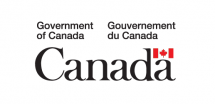Description
*PLEASE NOTE: there will be no meeting on April 4 (Easter Sunday); a makeup meeting is scheduled for May 9 to make eight sessions.*
All are welcome.
Limited to 12 participants.
In this workshop we will explore the process of writing memoirs and look at ways in which we can take a lighter approach, even when dealing with serious subjects. Writing about traumatic events in our lives is a different matter, and there are workshops that provide guidance in those cases; trauma by definition continues to vex us, and comical writing requires some distance from the events described. This workshop is aimed at those of us who wish to write about events that may or may not have been painful at the time, but on which we can now look back with amusement.
We will begin by discussing various issues that come up when we set out to write our memoirs. Questions that often arise include the difference between memoir and autobiography; how accurate/factual we need to be; whether we can write about people who are still alive; whether we need to reveal everything; definitions of creative nonfiction.
Participants will choose their level of participation, and as long as everyone who wishes to speak gets a chance to do so, there are no set requirements regarding individual contributions. No one will be pressured to speak or submit work; I want everyone to feel comfortable. Work-in-progress that is submitted will be treated with respect; encouragement is essential during the first stages of a writing project, and our tentative efforts benefit from positive comments.
Each participant may, if they wish, distribute to other workshop members a favourite excerpt (no longer than five pages) from a well-known memoir with humorous content. Our definition of humour will be broad, ranging from horrifically amusing (Lorna Sage’s Bad Blood about the mad grandparents she grew up with) to silly (Thurber’s My Life and Hard Times) to stand-up (Lenny Bruce’s How to Talk Dirty and Influence People) to contemporary (Jonathan Goldstein’s I’ll Seize the Day Tomorrow) to tragi-comic (Trevor Noah’s Born a Crime)—and anything else that strikes you as relevant to our topic. The distributed excerpts can serve as a springboard for examining literary techniques and the range of genre options. Whether or not we find something funny will always be a matter of personal taste, and one person’s joke is another’s dud.
There are some restrictions, however. QWF guidelines stipulate that material that stereotypes groups, mocks or denigrates others, or can be hurtful is not acceptable. Being a part of the denigrated group is not a mitigating factor. Sexist material does not have a place in this workshop. Where do we draw the line between poking friendly fun at eccentricities and hurtful discrimination? If you’re not sure, please ask me in advance. Graphic memoirs are welcome, especially where the text plays a prominent role, as in Alison Bechdel’s Fun Home or Roz Chast’s Can’t We Talk About Something More Pleasant?
The focus of this workshop is on writing for an audience, as opposed to therapeutic journal-writing. The latter is often a good place to start, and a way to get going, but the next stage is to shape the material so that it speaks to readers.
New in 2020-21: Needs-Based Workshop Scholarships
Fresh Pages Workshop Scholarships for BIPOC Writers and Playwrights


